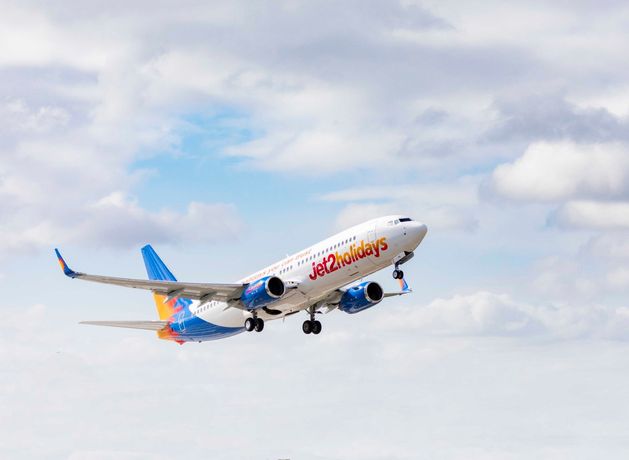Airlines including Air Canada, JetBlue and Etihad among carriers that fail to secure all takeoff and landings slots they requested for winter
Low-cost carrier Jet2 – which hasn’t previously operated out of Dublin – was among the carriers that sought takeoff and landing slots at the airport, which it didn’t get. The UK carrier operates to sun and ski destinations from airports across Britain and Northern Ireland.
Aer Lingus, Ryanair, Etihad, JetBlue, Air Canada and LuxAir also sought additional slots that they didn’t receive, as efforts are made to ensure Dublin Airport doesn’t breach its 32 million annual passenger cap.
Earlier this year, the Irish Aviation Authority placed a cap of 14.4m on the number of seats that can be available at Dublin Airport for the winter period, which runs from late October to March.
Today’s News in 90 Seconds – July 8th 2024
A winter slot coordination report from UK-based Airport Coordination Ltd – which manages slot allocations for dozens of airports around the world – confirms that just under 14.4m airline seats have been allocated for Dublin Airport in the upcoming period. That’s 793,000 fewer than during the previous winter.
The only carriers to secure additional or first-time slots they sought during the period were Lufthansa, FedEx, and DHL Air UK.
The report shows that other airlines that sought extra slots included Chinese carrier Hainan, Tap Air Portugal, Turkish Airlines, Iberia Express and United Airlines.
Airlines sometimes apply for slots that even if they awarded, don’t ultimately avail of, however.
Ryanair and Aer Lingus are the biggest operators at Dublin Airport, which is controlled by the DAA.
The report shows that Aer Lingus was awarded 85pc of the slots it sought, while Ryanair received 85.6pc. Etihad was awarded just half the slots it sought, while Air Canada received 57pc.
In submissions to the IAA earlier this year, Ryanair had said the regulator’s plan to limit available seats out of Dublin during the winter period would “artificially constrain” the airport’s capacity despite having a new runway and other infrastructure enhancements.
“Artificially constraining capacity at Ireland’s main international gateway would unfairly deprive airlines and passengers at Dublin Airport of the benefit of their recent substantial contribution to capital projects at the airport, while reducing competition, damaging economic growth, tourism and employment in Ireland,” said Ryanair’s director of network optimisation, Michael Healy, in a submission.
A planning condition attached almost 20 years ago to the construction of Dublin Airport’s T2 capped the total amount of passenger traffic at the gateway to 32 million a year.
Aer Lingus told the regulator that the process for determining [slot] coordination parameters at Dublin Airport “is not the appropriate mechanism to give effect to the planning conditions and also exacerbates the harm caused to carriers operating at Dublin Airport”.
DAA chief executive Kenny Jacobs warned the Joint Oireachtas Committee on Transport last month that Dublin Airport remains in danger of breaching its 32 million annual passenger cap this year despite its best efforts to ensure it doesn’t happen.
He said that US airline Breeze is among the carriers that wanted to launch services to Dublin, but couldn’t due to the passenger cap.

